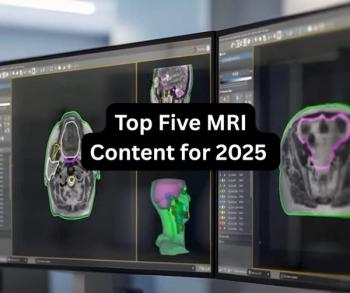
- Diagnostic Imaging Vol 32 No 1
- Volume 32
- Issue 1
Computer-aided dx breaks through in cardiac CTA
Computer-aided detection software developed especially for coronary CT angiography could boost imagers' ability to rule out clinically relevant stenosis in patients at low to moderate risk of coronary artery disease, according to researchers at the Medical University of South Carolina.
Computer-aided detection software developed especially for coronary CT angiography could boost imagers' ability to rule out clinically relevant stenosis in patients at low to moderate risk of coronary artery disease, according to researchers at the Medical University of South Carolina.
Dr. Joseph Schoepf and colleagues enrolled 59 patients without a history of coronary artery disease who had chest pain or abnormal cardiac blood flow exams. All patients underwent catheter angiography and cardiac CTA with computer-aided detection on either a 64-slice or a second-generation dual-source scanner. The software identified patients at low risk for coronary disease, none of whom were found to have significant stenosis under catheter angiography.
The system helped improve workflow and reduce unnecessary hospital stays, Schoepf said. Results were published online Nov. 6 in European Radiology.
Articles in this issue
about 16 years ago
Can you spot the image with the faked aortic dissection?about 16 years ago
CT sheds light on effects of fuel ingestion to lungsabout 16 years ago
Bone marrow lesions, sex predict knee osteoarthritisabout 16 years ago
Good news: decision support and e-ordering are on the wayabout 16 years ago
Guidelines set admins scramblingabout 16 years ago
Who says experts know more than politicians?about 16 years ago
CT colonography tops optical in cancer segment mapsabout 16 years ago
MRI boosts myocardial infarction assessmentabout 16 years ago
CT angiography predicts healing of bone fracturesabout 16 years ago
Economics, not race, sways mammo follow-up decisionNewsletter
Stay at the forefront of radiology with the Diagnostic Imaging newsletter, delivering the latest news, clinical insights, and imaging advancements for today’s radiologists.












